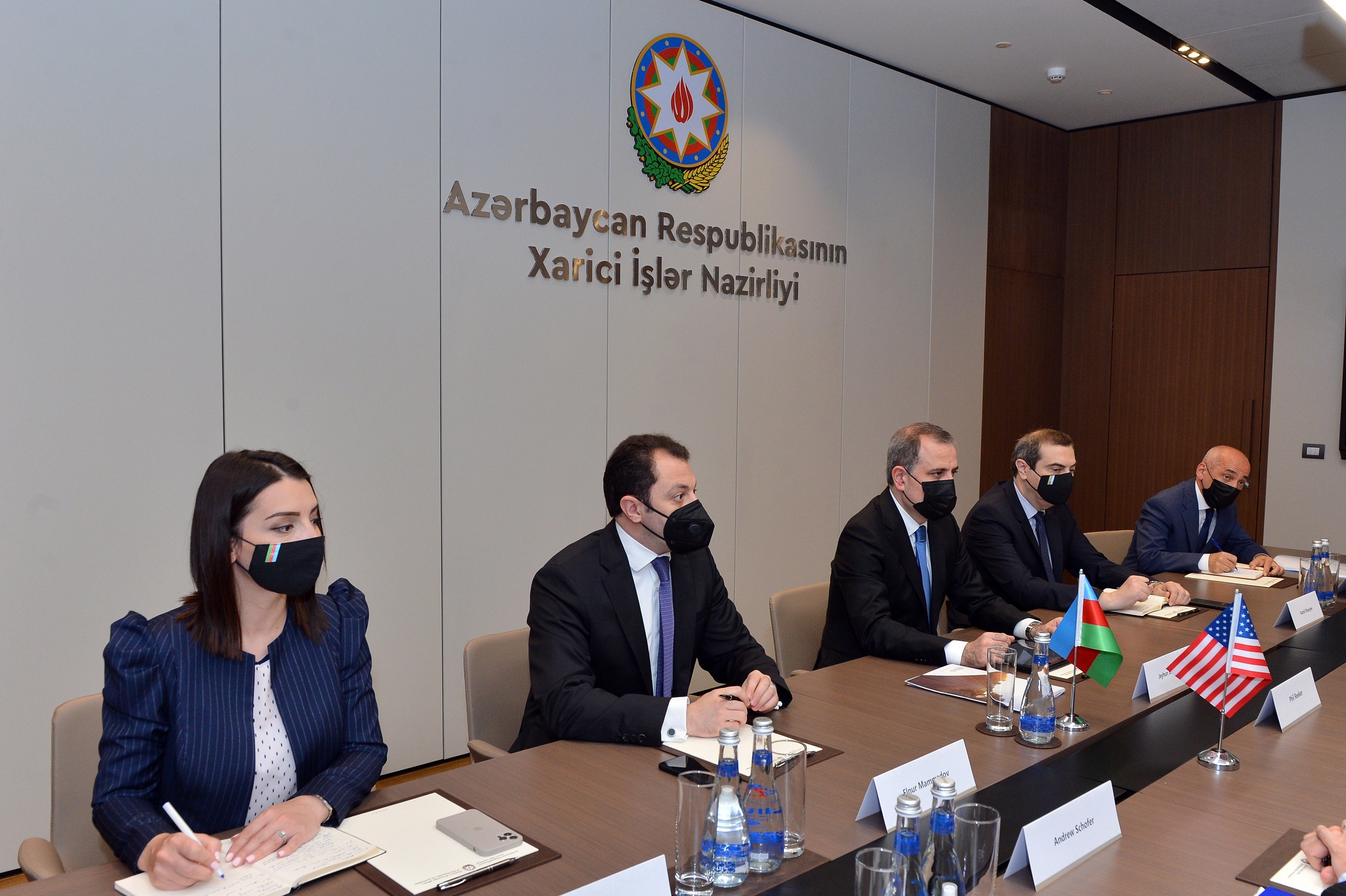On February 16, Azerbaijan’s Foreign Minister, Jeyhun Bayramov, engaged in discussions with U.S. Assistant Secretary of State for European and Eurasian Affairs, James O’Brien, upon the latter’s request during the Munich Security Conference.
Their dialogue encompassed a spectrum of bilateral and multilateral agenda items, along with deliberations on the potential for normalizing relations between Azerbaijan and Armenia on a bilateral footing.
Minister Bayramov underscored a recent instance of Armenian provocation resulting in the injury of an Azerbaijani serviceman due to sniper fire, devoid of any provocation on Azerbaijan’s part.

Azerbaijan-U.S Relationship (Credits: Radar Armenia)
He highlighted how such actions are geared towards destabilizing the peace process, expressing Azerbaijan’s commitment to maintaining regional stability.
Moreover, Minister Bayramov raised concerns about what he termed “binocular diplomacy,” denoting a form of propaganda against Azerbaijan.
He pointed out the contradiction between such actions and the professed objectives of the EU mission in Armenia, which purports to foster regional stability and confidence-building between Azerbaijan and Armenia.
Addressing the draft peace agreement, Minister Bayramov reiterated Azerbaijan’s steadfast opposition to claims made in the Armenian Constitution, legislative acts, and international forums challenging Azerbaijan’s territorial integrity. He emphasized the imperative of unequivocally refuting these assertions to uphold Azerbaijan’s sovereignty.
The meeting served as a platform to discuss various other bilateral and regional issues of mutual interest between Azerbaijan and the United States. These discussions likely encompassed broader geopolitical dynamics, regional security concerns, and potential avenues for enhanced cooperation.
Overall, the engagement between Minister Bayramov and Assistant Secretary O’Brien underscores the ongoing efforts to foster constructive dialogue and cooperation between Azerbaijan and the United States, particularly in navigating regional challenges and advancing shared interests in the Euro-Asian context.























